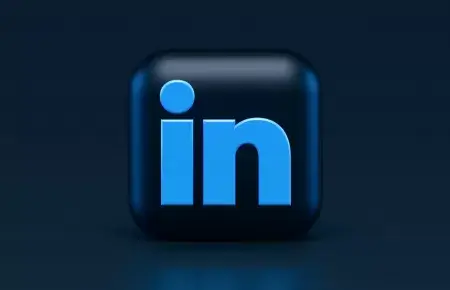
How to Answer Communication Skills Interview Questions

"The art of conversation is the art of hearing as well as of being heard." - William Hazlitt
In the world of work, communication is one of the most valuable soft skills that you can possess.
In this article, we're discussing how to ace interview questions about communication skills.
Read on to learn how to show off your communication skills, plus three sample answers to use as a foundation for your own.
What are communication skills?
Communication skills allow us to both understand and be understood by others.
Strong communication skills keep us informed, organised and on task. They also help us build relationships and trust with others
Examples of communication skills
Skills that fall under the communication category include:
- Presentation
- Clear writing
- Negotiating
- Active listening
- Team working
- Politeness/Diplomacy
- Friendliness
- Reflection
- Asking for information
- Confidence
- Empathy
- Self-awareness
- Respect
- Pacing
- Clarity
Why are communication skills important?
Communication skills are essential for success in the workplace. Hardly anybody works in isolation - we need to work with others - and to that end, we need to communicate.
Understanding others and helping them understand us allows for a productive work culture and ensures progress.
We need strong communication skills to keep our work accurate. Poor communication often leads to misunderstandings and mistakes.
Examples: Communication skills interview questions
Interviewers can ask you about your communication skills in several ways. Here are some popular examples:
- What is your communication style?
- How have you built good relationships with colleagues in the past?
- Tell us about a time you dealt with conflict
- How do you explain complicated concepts to a non-expert?
- Describe a situation where you needed to secure your boss's approval. What steps did you take?
- Describe a time you used active listening. What was the result?
- How do you minimise misunderstandings at work?
- Tell us about a time you delivered a presentation. What worked, and what would you do differently?
- Describe a time you had to navigate a sensitive topic. What approach did you take?
How to answer interview questions about communication
You might have noticed that the above questions are primarily competency-based.
A competency-based interview question encourages you to describe real experiences in the workplace to evaluate your actual skills. They are situational, meaning they assess your true responses to real-life situations.
Competency-based interviews are best answered in the STAR format (Situation / Task / Action / Result).
Communication skills STAR examples
Below we have drafted three answers to sample questions in the STAR format.
You can use these answers as a basis for your own. Think about how you could adapt the responses to fit your circumstances.
Question 1: How have you built good relationships with colleagues in the past?
Situation: I was new to my position and wanted to ensure I could get my ideas across in meetings. As a relatively young employee, I needed to demonstrate my willingness to learn and the skills I brought to the role.
Task: I needed to start with a foundation of trust - that begins with building a good relationship.
Action: I arranged lunchtime meetings with each of my new team members. I asked them about their role, what they enjoyed and what challenged them.
I also asked them for advice about my role and how to succeed.
After listening carefully, I was able to offer my support with relevant tasks.
Result: I felt I had a strong rapport with my colleagues from the beginning - this meant that I was afforded time to voice my opinions at meetings. An added benefit was that I could support the team's productivity.
Question 2: How do you explain complicated concepts to non-experts?
Situation: As a software developer, I needed to give a presentation to the board on how my work was helping to meet the company's objectives. This was a challenge as the board members knew very little about the technicalities of software development.
Task: I needed to find a way to explain my work without causing confusion or frustration.
Action: I thought carefully about what I needed to say in my presentation. I tried not to be too granular, keeping my points relevant to the company's objectives.
I then reviewed my notes and removed any non-essential information for clarity.
At home, I gave a practice presentation to my boyfriend, who has no software development experience. Whenever he asked a question about something he didn't understand, I noted this down and edited that aspect of my presentation.
When presenting to the board, I was careful to pace myself and pause, allowing the audience to absorb information. At the end of each section of my presentation, I encouraged questions.
Result: I felt I communicated the details of my role effectively. Making time for questions and limiting my presentation to just the essential information led to some fruitful discussions and a greater appreciation within the company for my role.
Question 3: Describe a time you had to navigate a sensitive topic. What approach did you take?
Situation: As an HR manager, I often have to support colleagues through challenging times. I once had a colleague who was experiencing mental health challenges. It was clear that they were suffering from burnout and needed to take some time off, but their line manager informed me that they were resistant to this idea.
Task: I needed to help the colleague navigate this problem in a healthy way.
Action: I spoke with the colleague in a confidential setting. Before giving advice, I asked the colleague to explain the situation to me in as much detail as they were comfortable with.
I listened carefully - I didn't take notes while speaking as this was a very sensitive matter, and I needed to demonstrate compassion and respect.
After listening to the colleague, I asked them to voice their concerns about taking time off. They were concerned that if they took time away from work, then their position at the company would no longer be secure. I calmly and politely challenged this assumption and explained how taking time off work could benefit rather than hinder their work performance.
Result: Fortunately, the colleague saw that taking some time off would help them to address their burnout. They are now back at work and in a much better place - as confirmed through our regular check-ins.
Final thoughts
While we often associate communication skills with our ability to hold attention and persuade, strong communication is really about treating others with respect.
Do you feel more confident about answering communication skills interview questions?
Check out these guides on how to answer other competency-based interview questions:
- Delivering at pace
- Managing a quality service
- Prioritising your workload
- Leadership
- Analytical skills
Remember, when you're placed for an interview through Eden Scott, we give you tailored interview training to help you feel better prepared.
Next steps
Ready to start a new job? Take the first step, upload your CV today.




